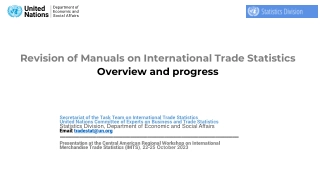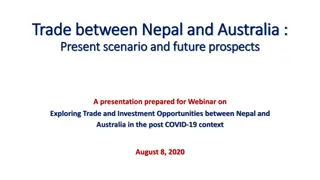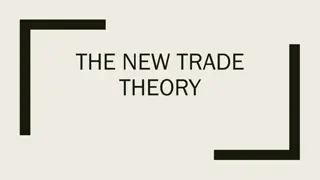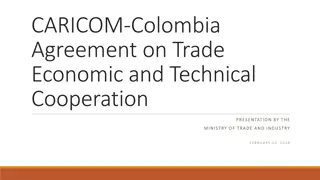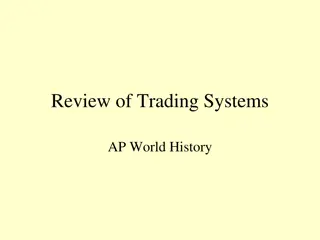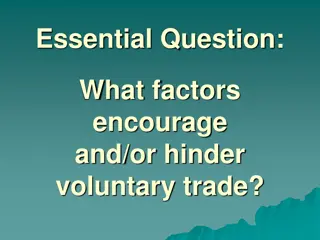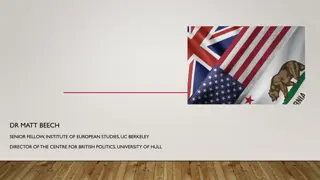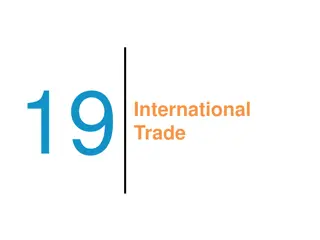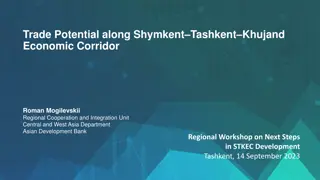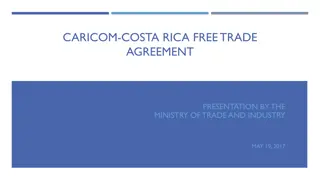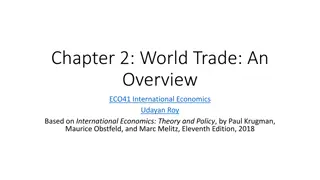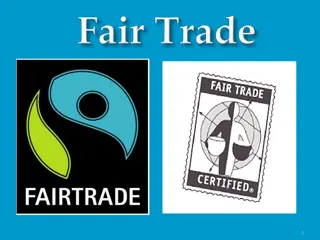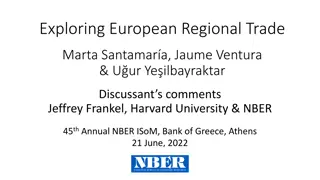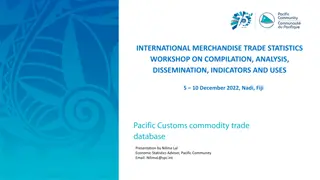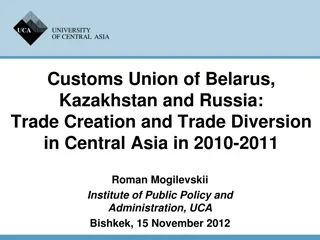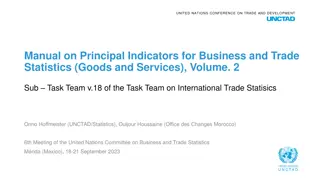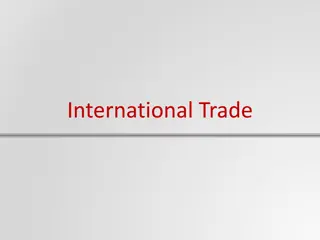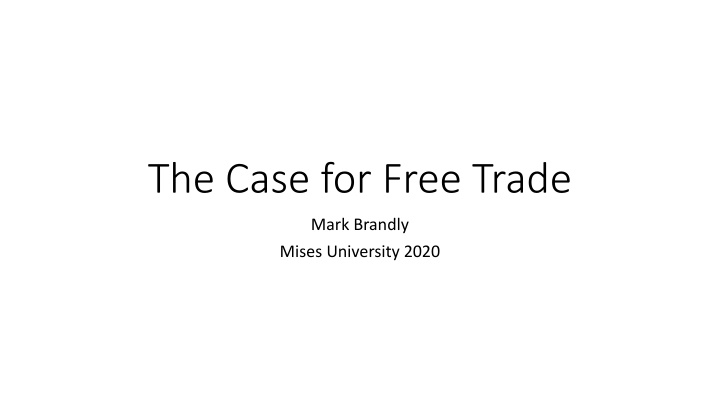
The Case for Free Trade: Benefits, Perspectives, and Historical Insights
Explore the significance of free trade through historical perspectives and economic insights. Learn about the gains from trade, the law of comparative advantage, and the impact of protectionism on national economies. Discover how international cooperation and the division of labor contribute to wealth creation and economic prosperity.
Download Presentation

Please find below an Image/Link to download the presentation.
The content on the website is provided AS IS for your information and personal use only. It may not be sold, licensed, or shared on other websites without obtaining consent from the author. If you encounter any issues during the download, it is possible that the publisher has removed the file from their server.
You are allowed to download the files provided on this website for personal or commercial use, subject to the condition that they are used lawfully. All files are the property of their respective owners.
The content on the website is provided AS IS for your information and personal use only. It may not be sold, licensed, or shared on other websites without obtaining consent from the author.
E N D

